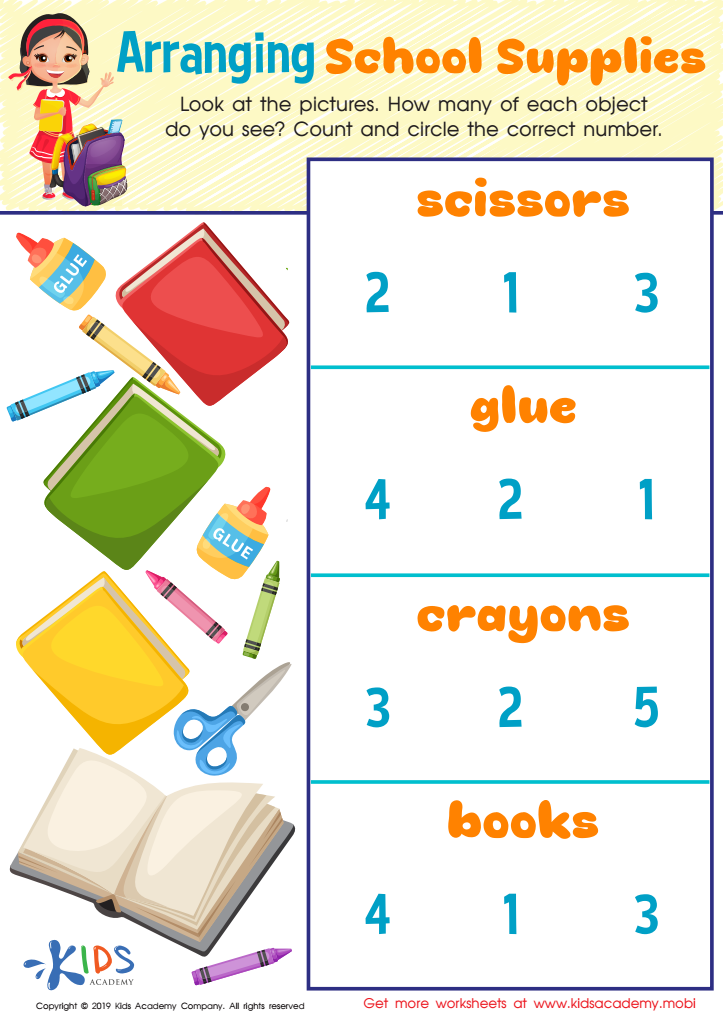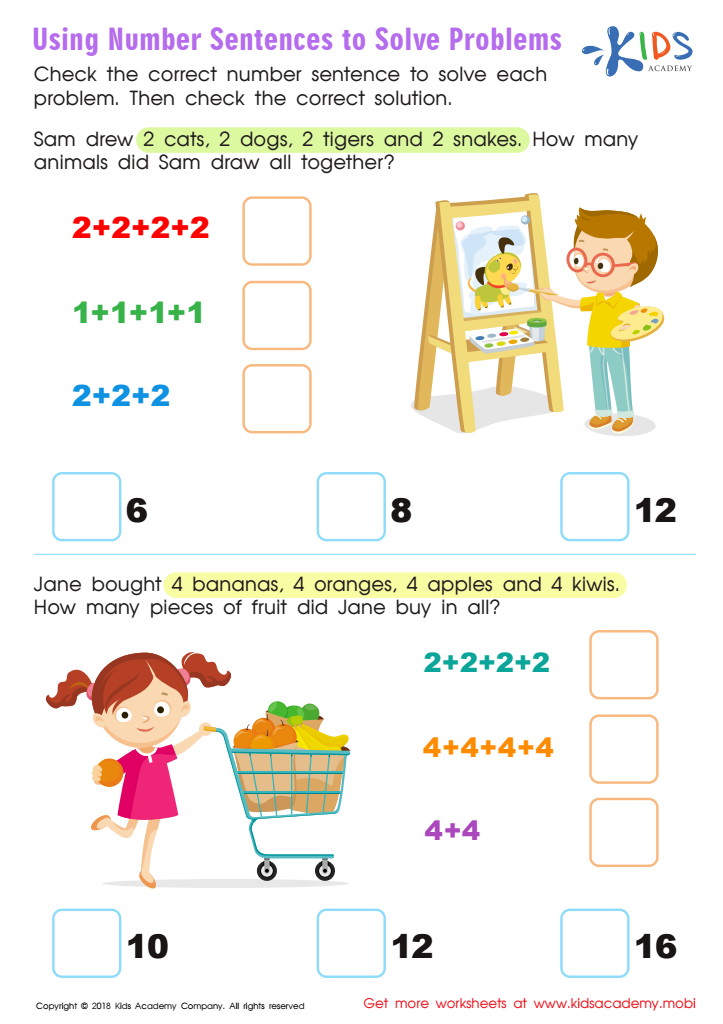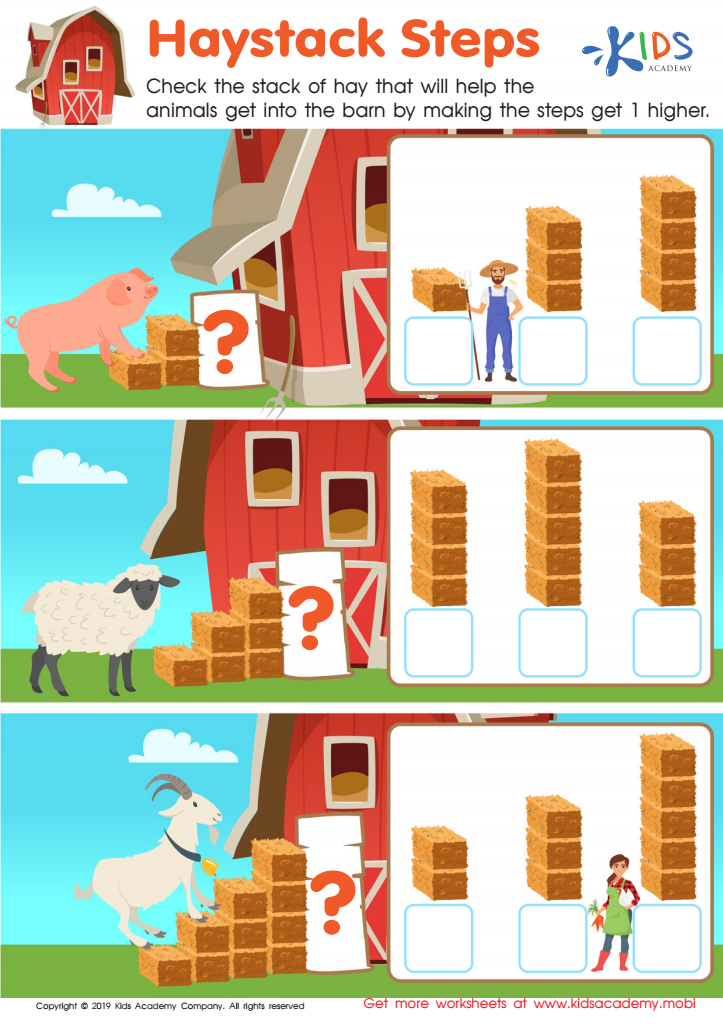Understanding Sequences Easy Numbers Worksheets for Ages 5-6
3 filtered results
-
From - To
Our "Understanding Sequences Easy Numbers Worksheets for Ages 5-6" are designed to help young learners master the concept of number sequences effortlessly. Tailored for children aged 5-6, these fun and engaging worksheets challenge kids to identify, continue, and complete simple number patterns. By working through these activities, children enhance their counting skills, logical thinking, and pattern recognition—all while having a blast! Perfect for classroom use or at-home practice, our worksheets make learning sequences an enjoyable experience, laying the foundation for future math success. Unlock your child's potential with our interactive and educational sequences worksheets today!


Arranging School Supplies Worksheet


Using Number Sentences to Solve Problems Worksheet


Haystack Steps Worksheet
Understanding sequences and easy numbers is crucial for young learners aged 5-6 because it forms the foundation of mathematical thinking. Sequences, such as counting, tend to predict numbers systematically, and learning to recognize patterns plays a pivotal role in cognitive development. This foundational skill helps children comprehend order and the concept of "before" and "after," fostering logical thinking and problem-solving abilities.
For parents and teachers, emphasizing these early concepts is essential. As children grasp simple sequences, they become more confident in recognizing numbers, improving their ability to tackle more complex math operations later on. The mastery of sequences aids in understanding addition and subtraction, as these operations are inherently sequential.
Moreover, engaging young minds with sequence activities enhances attention to detail and memory skills. Many sequences are repetitive which strengthens neural connections, better equipping children to process and synthesize information, building a solid foundation for advanced topics, not only in math but across other subjects as well.
Thus, early intervention ensures children enjoy learning and maintain a positive attitude towards education, fostering long-term academic success. Ensuring a robust foundation in sequences for young learners is therefore critical for developing their overall logical and analytical skills, confirming its utmost importance for both parents and teachers.
 Assign to My Students
Assign to My Students















